Amr Ezzat has always had vivid dreams. After separating from his wife in 2010, Ezzat, who works on matters related to religious freedom at the Egyptian Initiative for Personal Rights, moved into a Spartan white-tiled apartment with nothing but a lumpy mattress for furniture. Empty space swiftly became a recurring feature in his dreams. He began to post them on Facebook, where they eventually came to form a diary of sorts.
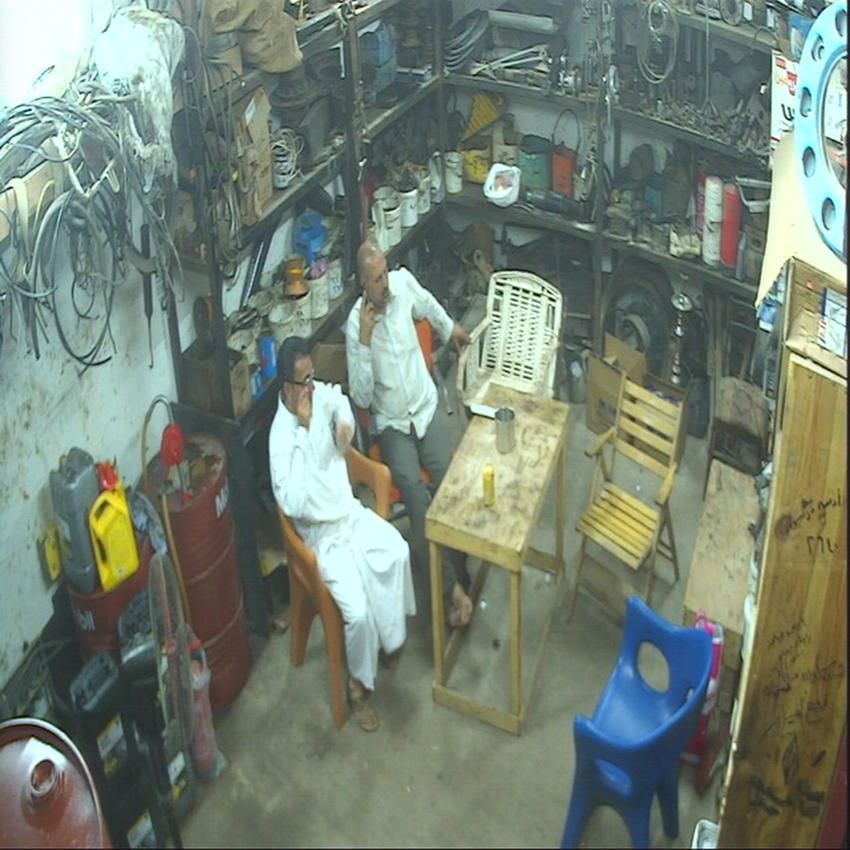
Baradei
January 29, 2010
It’s all over the news: Mohamed ElBaradei in a ragged grey gown, being led by authorities out of a bakery and into a police vehicle. On the news ticker: “Bakery owner arrested on charges of stealing subsidized flour.”
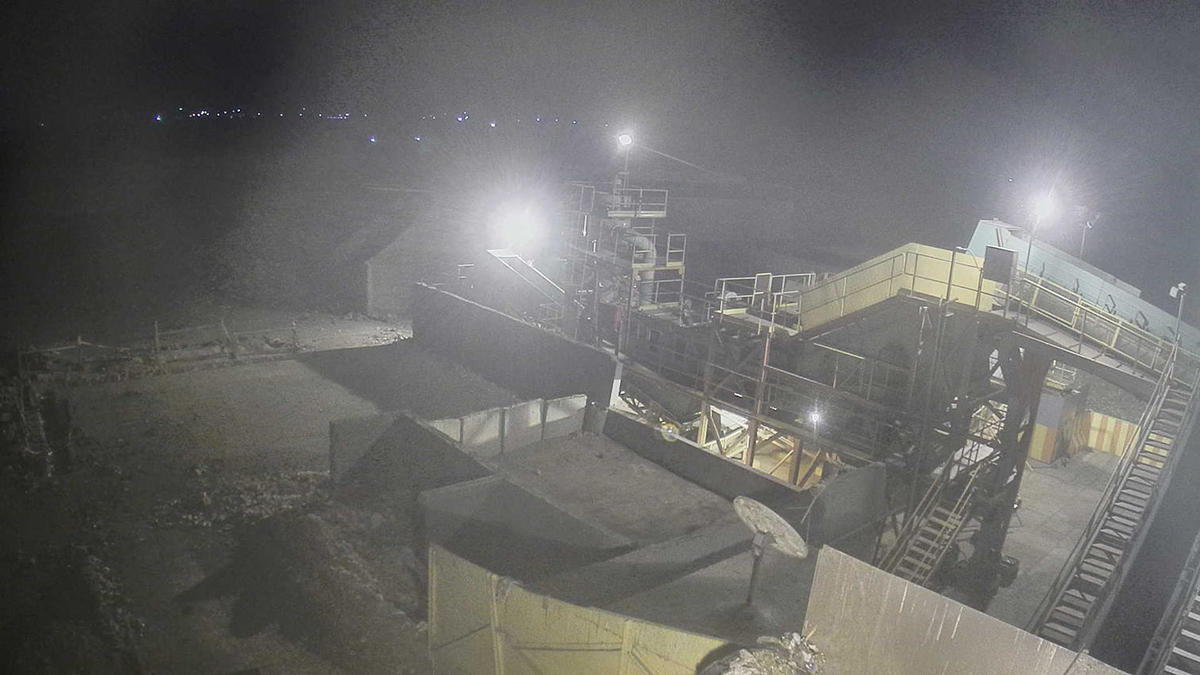
Jerusalem Marble
March 25, 2010
Heavy repairs in the streets around the High Court of Justice. The work area stretches through the heart of Cairo, all the way to Midan Ataba, and as we make our way forward, ignoring the signs, it looks as though we’re part of a silent demonstration, or we’ve just broken out of a siege. The road comes to an end, of sorts, and one of us cries out: “We’ve arrived to Jerusalem!” Another exclaims: “This is where the Al-Aqsa Mosque used to be!”
We stand in awe for a few moments, looking out over an empty stretch of marble that extends to the horizon. They say the entire city has been demolished, and now everything has been paved over with marble.
Everyone seems to be wearing the same outfit: jeans and a white t-shirt. The empty city is teeming with people of all races and nationalities. There are young men handing out bags of potato chips, boxes of juice. Everyone is happy —ecstatic, even. People are drinking and eating. Some have laid down on the marble. One group is dancing the Dabke, while others seem to be moving to inaudible disco music. It feels like a ceremony of some kind. A deep calm prevails. There are no sounds save some soft whispers and a whistling wind.
As night falls, dim lights appear. I sit on the ground with the nice girl. The marble is unusually warm, I say. She smiles, places her head on my thigh, and falls asleep.
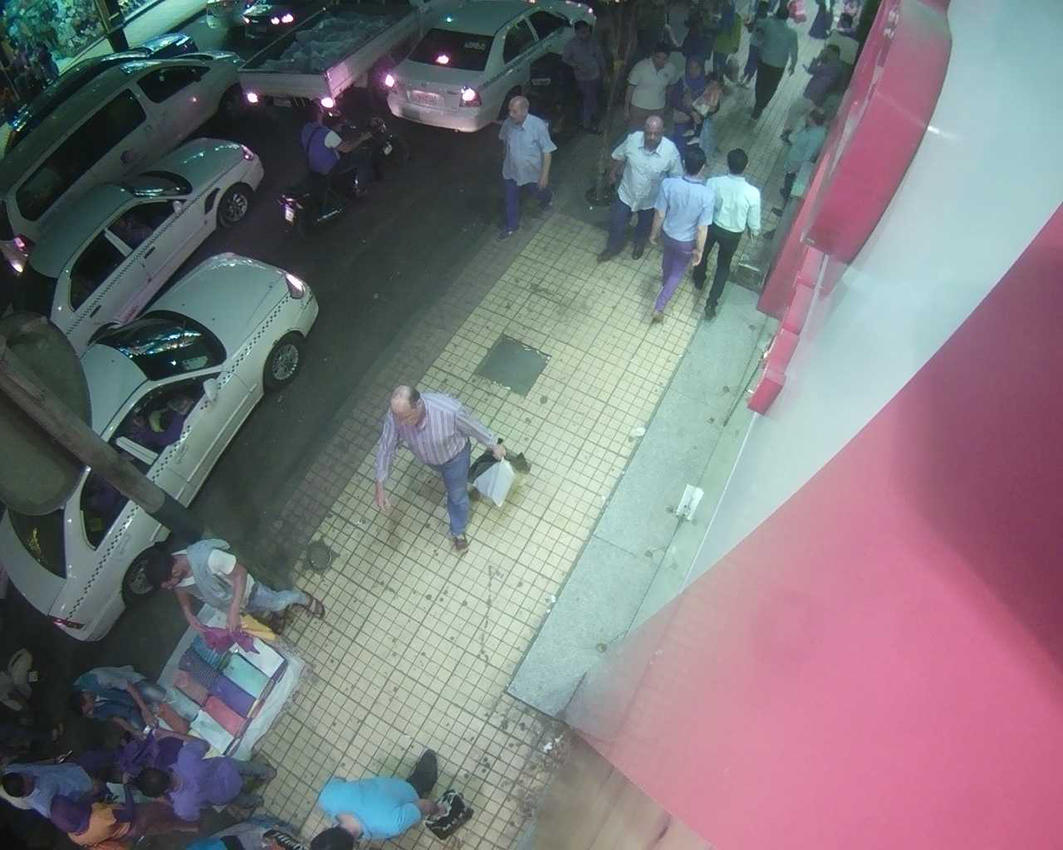
The Plan
November 10th, 2011
Noha appears in the doorway to the hotel bar. She looks tired. Dust covers her hair and clothes, and her eyes are skittish. She heads straight to the bar, sits on the stool next to me, and asks the bartender for a bottle of water.
The Indian bartender looks up at her with a slimy grin. “What’s his deal?” she asks. “I think he owns the hotel,” I say.
“Where’s Bassam?” she asks. I tell her he is dancing with Miriam Fares, and point in their direction. The dance floor is full of people.
She gulps the entire contents of her water bottle, wipes her mouth in exhaustion, and announces: “I see them.”
“Here’s the plan,” Noha says matter-of-factly, putting down her water bottle. “We’re going to approach every single person dancing here, one at a time. We tell them we want a word, take them aside, beat them unconscious, and then carry them out. If the security man asks, we say they’re drunk and we’re taking them home. Then when we’re out of sight, we dump them in the street and come back for the next one.”
I climb off my stool, nodding seriously. Lightly, I say: “Let’s go.”
We head towards the dance floor, and a sequence of silent scenes ensues. We are executing the plan, tossing one person after another into half-dark streets lined with thick trees.
I think of the moment when we get to Bassam and Miriam, and wonder which of them we’ll take out first.
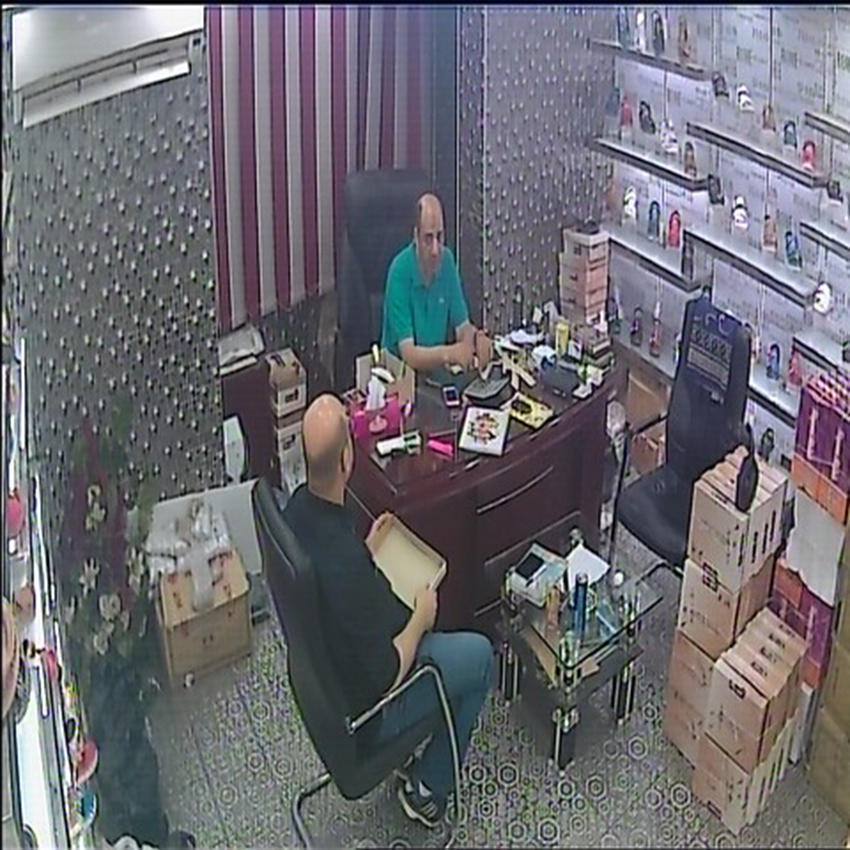
Dina
December 13, 2011
Dread-filled eyes face me.
“Your sister has run away.”
I am silent for a few moments as I consider my reply. “I have a sister?”
My brother Mahmoud answers, as if tired of reminding me of something I always forget. “Yes, yes — your sister.”
“My sister?” I muse. “How come?”
He continues, resignedly. “Your sister from your dad’s other wife.”
I look to my father. “His other wife?”
“Yes, yes,” Mahmoud says. “Your sister has run away.”
I sink into silence. “You’re the only one of us that she loves,” my father says, interrupting my thoughts. “Find out where she’s gone. Call her.”
“Me?”
“Yes, Amr. Quickly!”
I look into Mahmoud’s eyes, trying to make sense of what is happening. “Alright,” I say. “Alright, I’ll call her.”
I walk out into the street. It looks like one of the streets in the old market area in Khartoum, and it reminds me of a certain street in Italy, where I’ve never been. On the side-streets, young men in masks are running from clouds of tear gas. In the distance, the tear gas clouds have merged with a heavy fog that seldom hangs over Cairo.
I sit on a sidewalk shaded by the stone arches of a classic Belle Époque building. I take out my phone and dial.
“Who is it?”
“It’s Amr.”
“Amr who?”
“Your brother, Amr.”
She lets out a sudden yelp. She’s never going back, she says to me, almost shouting. Everything’s going to change. She won’t speak to any of them ever again.
She says a lot of things. I lose my eyes in the fog and my ears in her loud, angry voice. My mind wanders. Suddenly it is quiet and I hear her voice, suddenly calm. “What do you think?”
“I am on your side, of course,” I reply. “I’ll tell them you didn’t pick up.”
She bursts into tears and tells me that this is just what she’d expected—that I would be the only one to support her. Then she starts to laugh. She’s been scared to death ever since she left the house, she says. But now she feels safe, somehow.
I smile and go quiet. She goes quiet, too, catching her breath after the tears and the laughter.
I can’t think of anything else to say, so I ask her: “What’s your name?”
“My name is Dina,” she says.
“Alright then,” I say, “take good care of yourself, Dina. Call me if you need anything, okay? And let me know how you’re doing, always. Goodbye.”
“Goodbye,” she says, in a soft, low voice, as if from the verge of sleep.
A heavy, unannounced weariness overtakes me. I lie back against a cool stone column, stretch my legs out ahead of me, and close my eyes. A group of young men run by, coughing violently. My phone rings. I recognize my father’s name, but I’ve had enough for today. I switch off my phone.
I’ll lie to them, tomorrow.
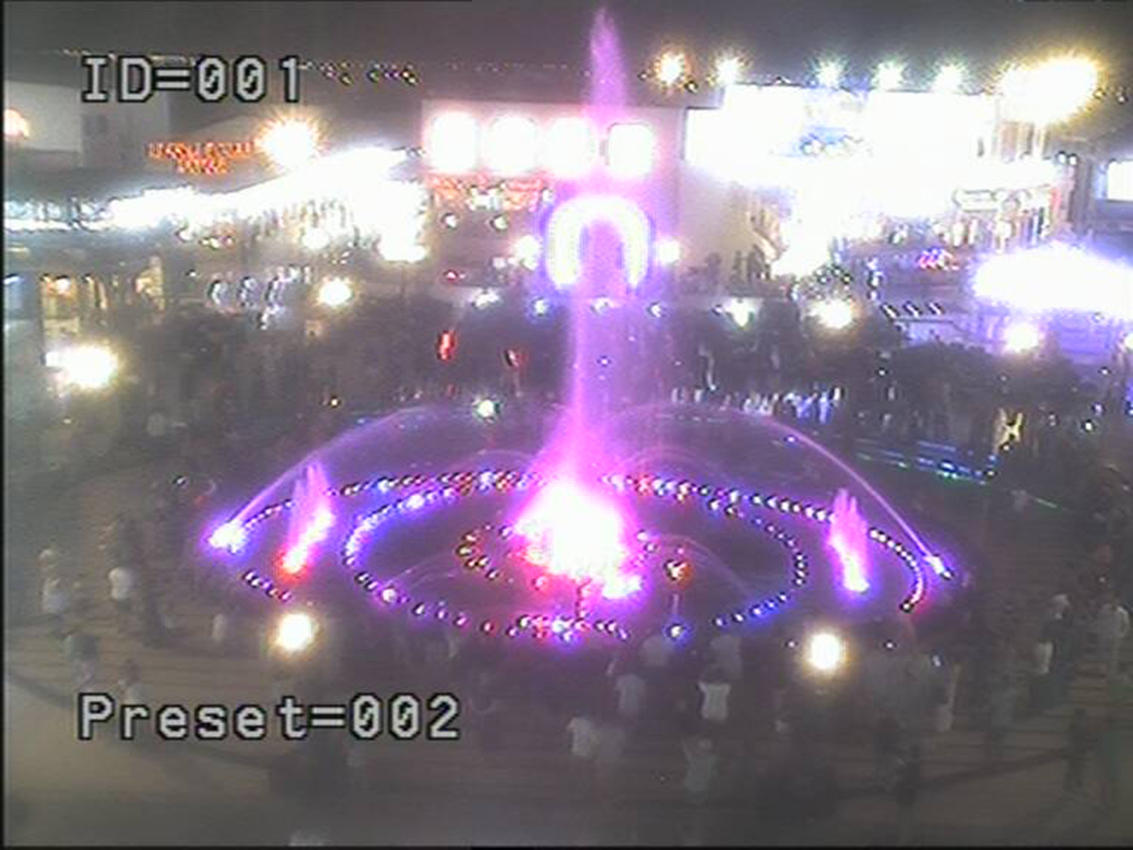
Optimistic About the Future
June 20, 2012
The results of the Egyptian presidential elections come out today, and I am in Tunis with a few people I know. We are huddled together on Bourguiba Avenue near the Ministry of Interior, where large screen televisions have been specially installed for the occasion.
I’m standing next to a billboard with an advertisement for Tunisiana, the telecommunications company, sipping tea from a mug. I think back on the hours I spent at Tunisiana’s corporate headquarters today, having tried and failed repeatedly to activate a Tunisiana SIM card I purchased so I could use the internet. I stood there in front of a sign that read “Optimistic About the Future” while they told me over and over again that everything was fine with their SIM card, and with my phone’s settings, but at the same time there was no way I would be able to activate my connection.
These thoughts are interrupted by a buzzer signaling the start of the press conference. Everyone is nervous. Most predict Mohamed Morsi will win. But the result is — Ahmed Shafik.
I find myself tossing my mug and tearing the Tunisiana billboard apart. Someone else lifts up a chair and smashes it into the TV screen, sweeping it into the middle of the street. The entire avenue erupts in anger.
Swarms of riot police and soldiers abruptly appear in our midst, as well as hordes of black-shirted Salafis. Fires break out here and there as the clashes escalate. “The people demand the fall of the regime, you sons of bitches!”
I lose track of everyone in the fury of running and fighting. I am suddenly surrounded by a group of Salafis. Soldiers start to chase us so we bolt down a side street. One of the Salafis takes a burning Molotov cocktail out of his leather bag and hurls it in the direction of the soldiers, who back off. A car goes up in flames; we duck down behind it. We shower them with stones and fire bombs as their bullets slam into the body of the car.
Things slow down. Only now do the Salafis realize that I’m not one of them. One comes over and speaks to me in Egyptian Arabic with a Tunisian accent. “Egypt is still one week behind,” he says. “And the filthy media keeps saying Salafis are burning Tunis over an art exhibition.”
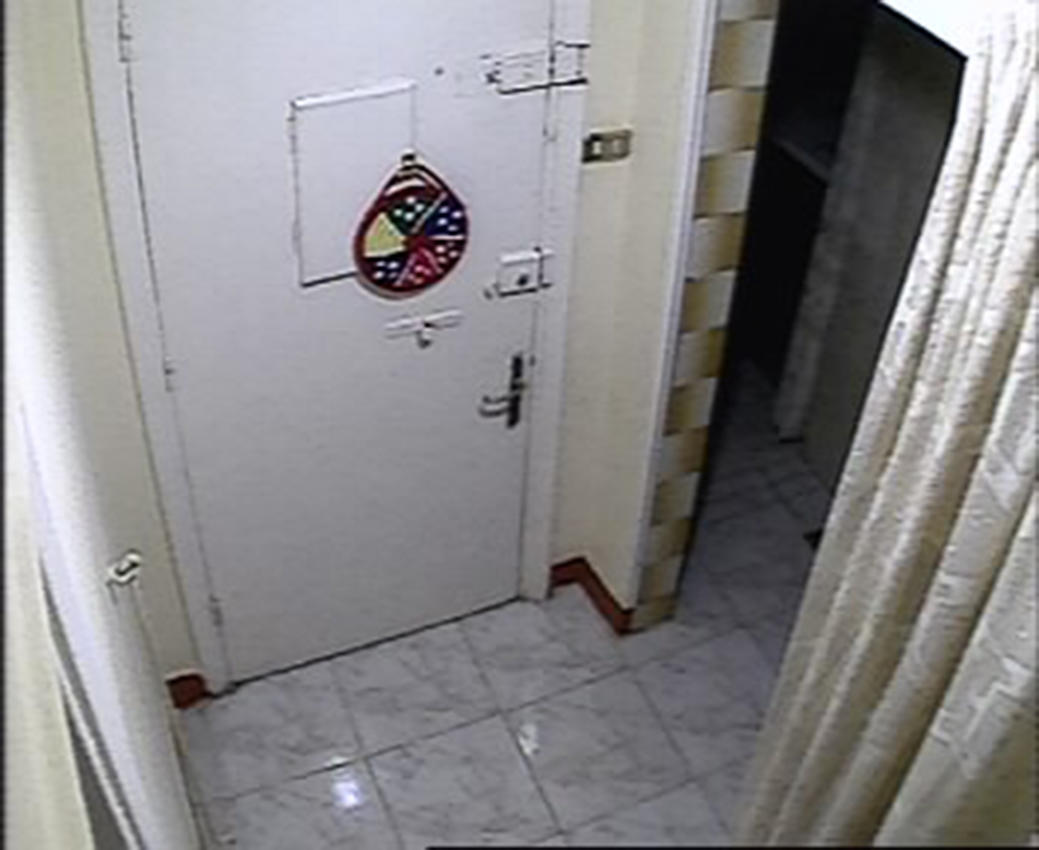
Andalusia
January 4, 2013
Spain and Portugal are in the World Cup final. Egyptians are divided between the two teams, and have taken to the streets, carrying flags of the two countries in massive marches. Clashes break out between the two sides, which last well into the game. Before the match is over, stones start to pour down from the sky over Cairo. People stumble into stores and apartment buildings for shelter, while many lie under cars parked in the street.
The stone rain does not stop.
Nobody knows the score.
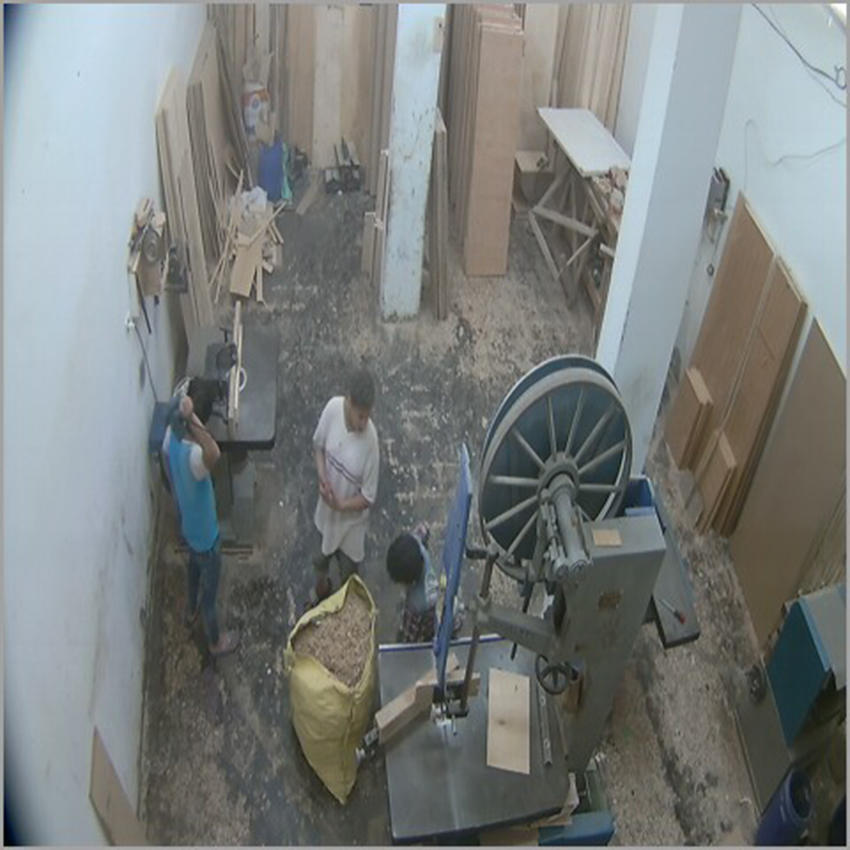
Hannah Arendt
February 27, 2013
On Sharia el-Nil, I see Hannah Arendt in a dark, modest dress and no headscarf, like the Coptic ladies in Cairo’s poorer neighborhoods. She’s just exited Al Warraq Church, and is walking with difficulty in slow, feeble steps.
She waves at a microbus, and climbs up slowly, aided by two young men who step down to help her.
She sits next to a window, and her eyes seem to wander until she sees me. She raises her hand, flashing me a victory sign, and then smiles.
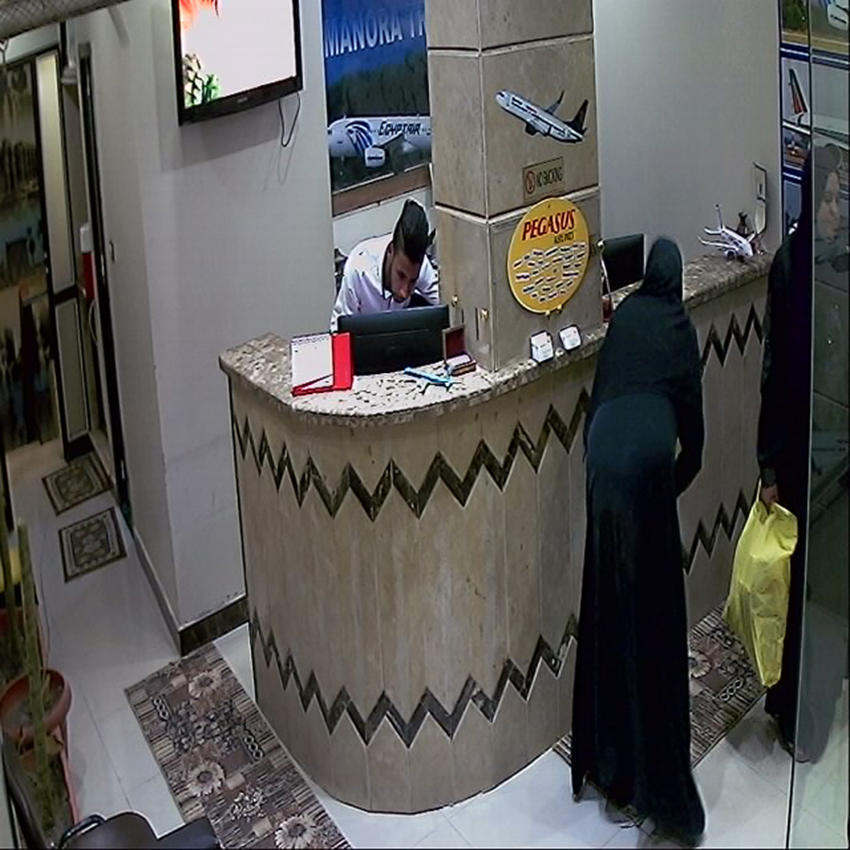
The National Dialogue
April 2013
I receive a WhatsApp message. You’re overdoing it, I am trying to defend myself. It is from Mohamed Morsi.
A few seconds later I get another message. I will send a car for you in half an hour to bring you to the palace for an open session of the National Dialogue. I hope we don’t waste it.
I am in a café in Zamalek. A microbus arrives. “Let’s go, sir,” the driver says. “The presidency sent me.”
“The presidency?”
“Yes, sir. The National Dialogue.”
I get in. I am alone with him in the microbus.
We drive through downtown, through the Azhar Tunnel. We are stopped at a police checkpoint. The driver steps out to speak to the officers. Their conversation drags on and on.
I get out of the car and walk toward them. I hear one of them say, “This is the stolen vehicle. Take him away.”
The officer notices me. “Are you with him” he asks?
“No, no.”
The driver interjects. “He’s with me, all right. We stole it together.”
“Take him, too,” the officer orders, impatient. “Let’s see how this ends.”
I consider my options as I watch the soldiers approach me. I make my decision. I start to run.
A few moments later, I look over my shoulder; there are no sounds of pursuit. They’re all standing there, the cops and the driver, watching me indifferently. Bored. I keep running but at a slower pace, turning back twice to make sure they aren’t moving.
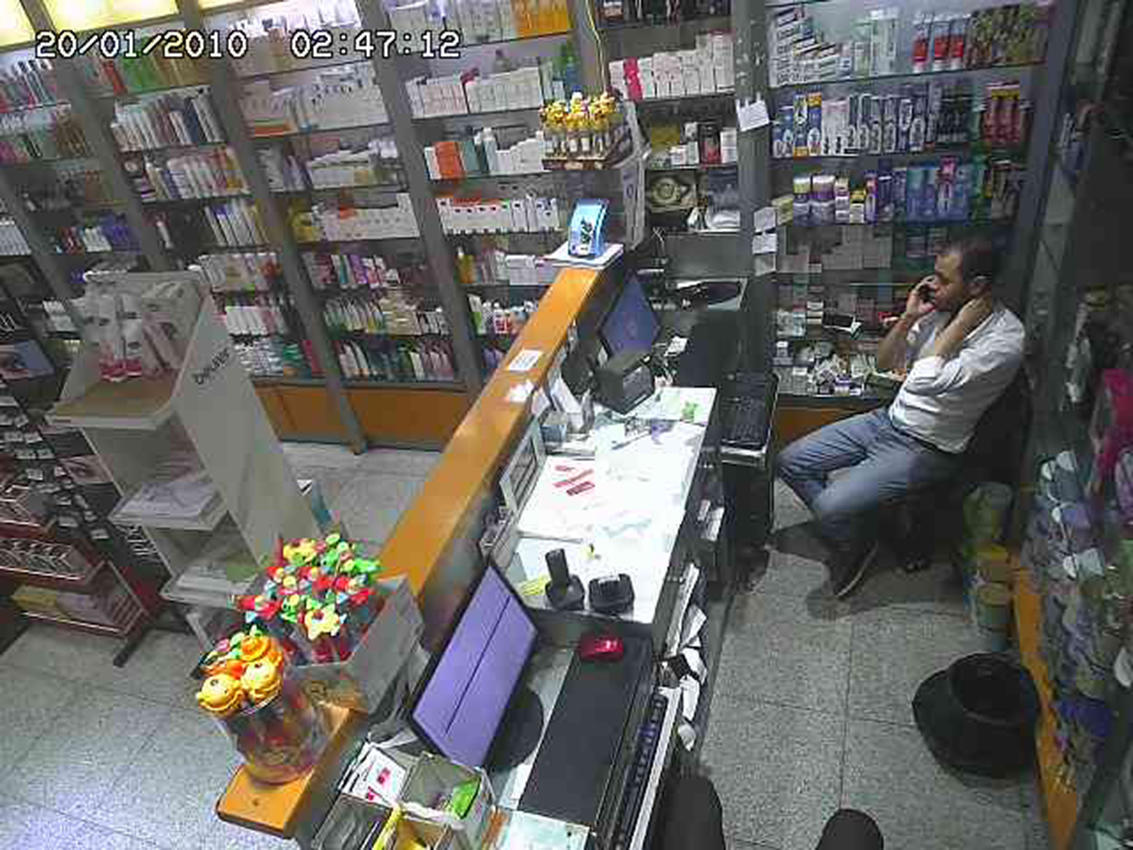
Nietzsche
October 12, 2013
Nietzsche is sitting on a bench in front of that villa in Muqattam, clad in a dark gown.
I’ve seen him there before, but this time I stop and wave, wondering which language I should address him in. He heads me off with a frown, his bushy mustache twitching with the movement of his lips as he says, “Yes, sir. How can I help you?” in a gruff, Upper Egyptian accent.
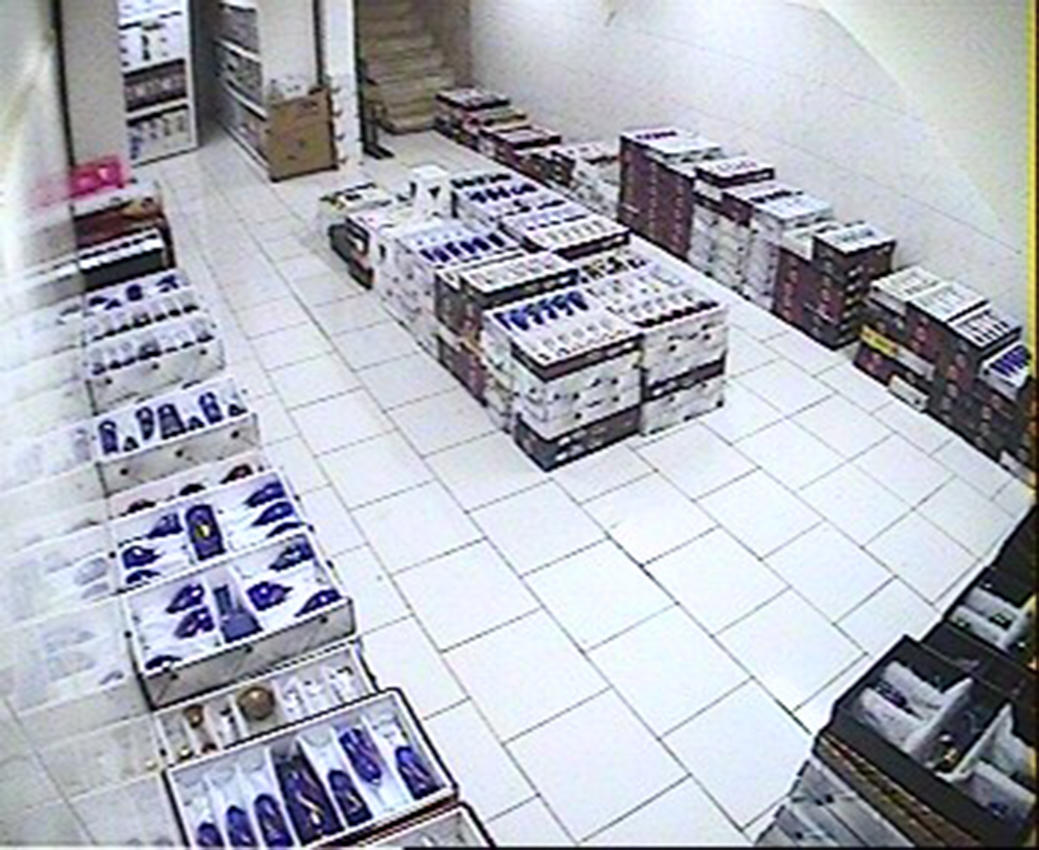
She’s His Wife!
February 17, 2014
Mass demonstrations break out in Cairo after the police arrest Bassem Youssef hours before The Program is set to air. We’ve been waiting to see whether tonight’s episode will be broadcast. The news report says that the episode will not air because Bassem was caught with a woman in a private apartment and that they have been charged with obscene behavior.
I join the closest march heading to Tahrir Square. Our chants grow louder:
She’s his wife! She’s his wife! She’s his wife — you sons of bitches!
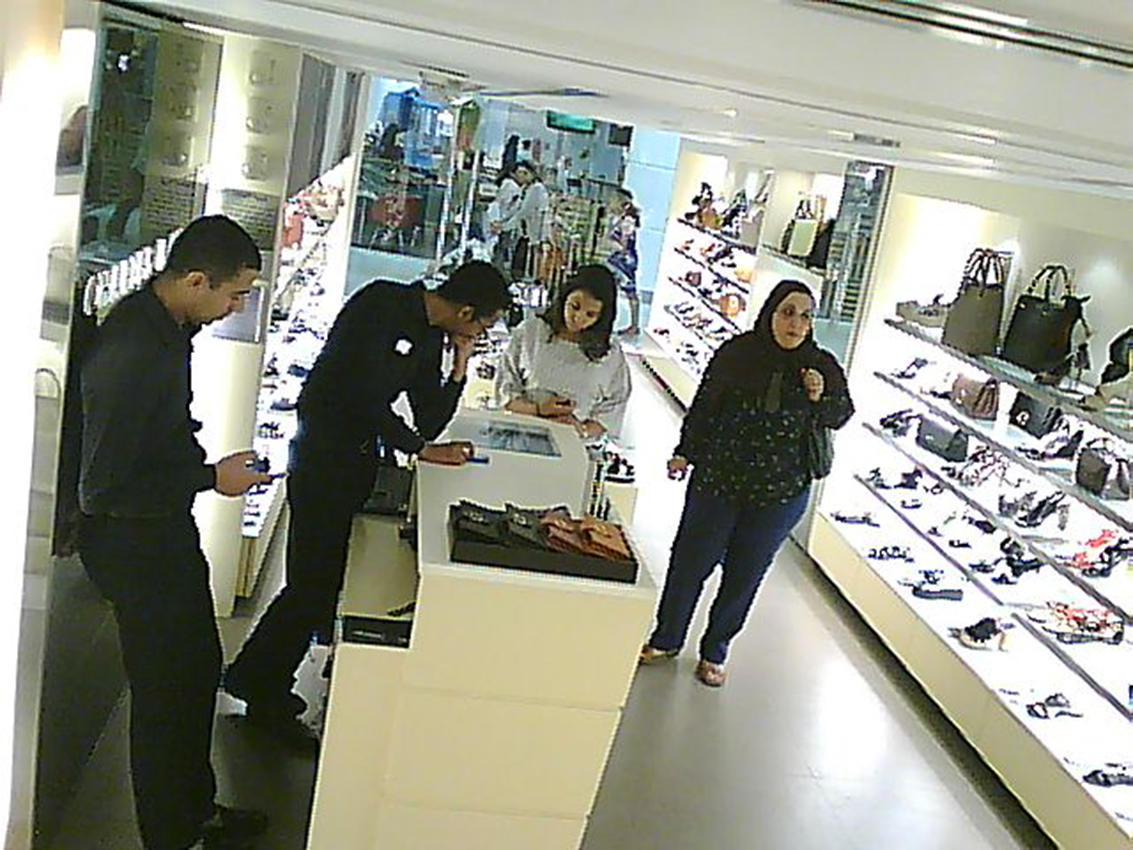
The Escape
March 17, 2014
I creep along the prison walls with the crew. Preparations to begin shooting my film on sneaking Alaa Abdel Fattah out of prison are going well. Now all we have to do is sneak him out of prison. It’s going to be a beautiful film.
The associate producers blow up part of a wall. Alaa is waiting right behind it. He stumbles quickly through the hole as the alarm whistle sounds.
I give my instructions to the cameraman. Alaa has already started running. I ask him to slow down so that we can get the footage.
“Are you nuts?” he yells. “What the hell are you doing?”
He is speeding away with Manal, Mona, and Sanaa—we’d asked them to attend the shoot—and I run along next to them. The crew is filming us as I try to calm Alaa down. Look, I say, we’ve all committed a great crime today and you’re going to be back in prison sooner or later, anyway, so… just let us shoot our film instead of trying so hard to get away. It will be much more meaningful, I say. This film is sure to become an important document of our times—and, a sweet memory.
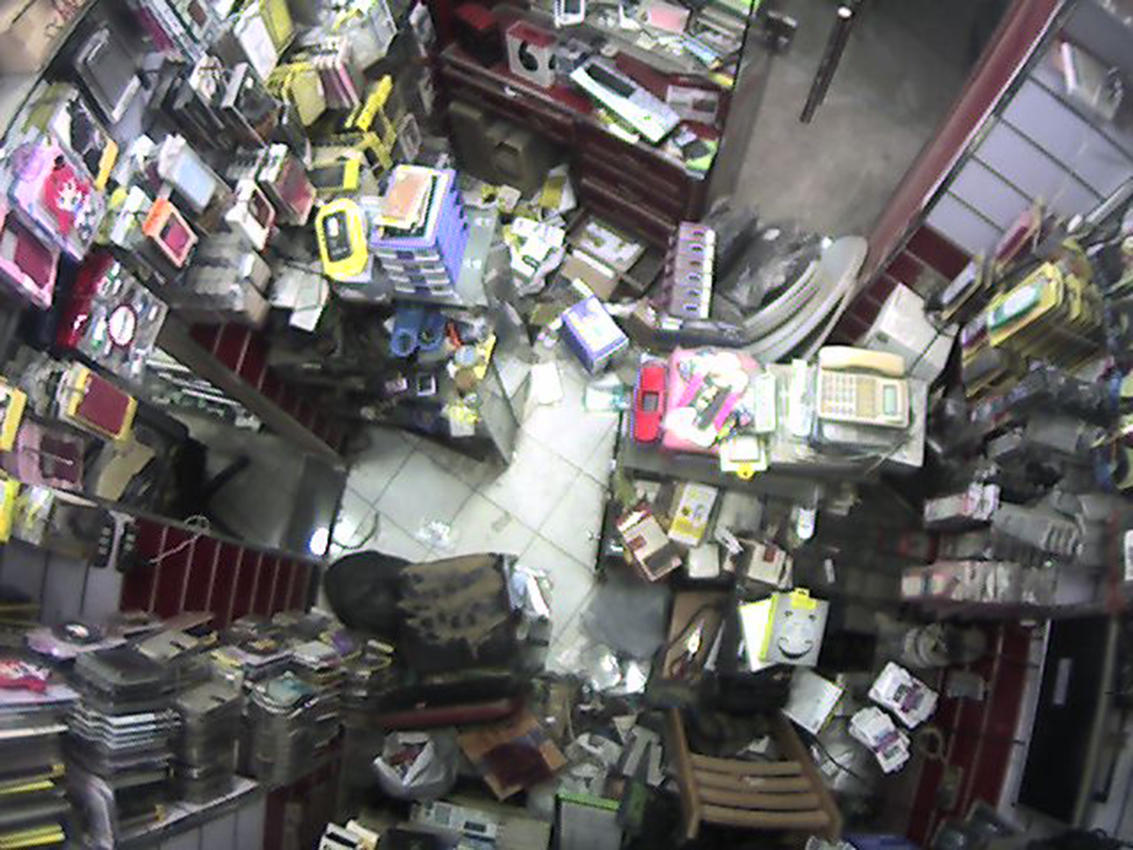
Why Just the Monkey?
October 3, 2014
Soheir and I sneak into Khairat El-Shater’s house with the help of a trained monkey. The monkey jumps in first and opens the windows from inside so we can enter.
When they find out about this incident, we predict, they’re going to think it’s politically driven. It won’t occur to them that all we want is the money.
Inside, we stand gaping at the empty foyer, devoid of any furniture, devoid of anything at all. We wander through the entire house, investigating room by room.
Nothing.
We sit laughing on the tiled floor until the sadness begins to creep in on us. Soheir says she is tired and wants to take off her veil for awhile. She walks into an empty room and closes the door. The monkey knocks and starts toying with the doorknob. She squeals from inside. “Don’t come in, Amr! I don’t have my veil on!”
When the door cracks open and she see it’s only the monkey, she laughs. “Okay, come in and close the door behind you.” It is happy to oblige.
I laugh. “Why just the monkey?”
“What? I can’t hear you,” she yells from the other side of the door.
“I said, Why just the monkey?”
She laughs, loudly, and calls out: “We’re all such a bunch of losers.”
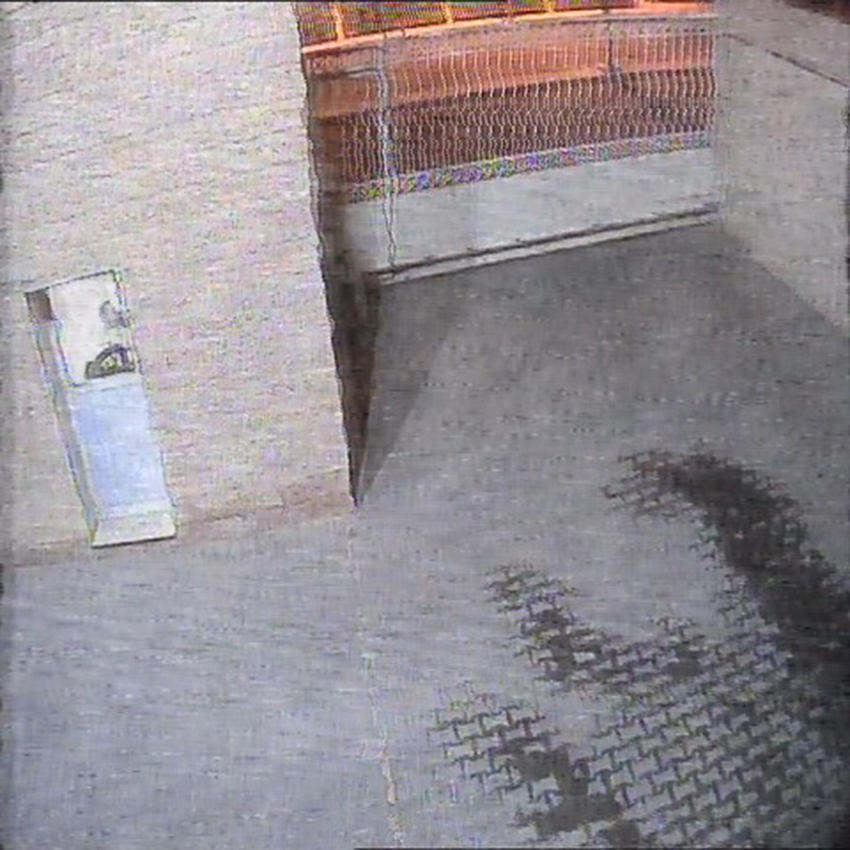
Hate
April 16, 2015
I am at the pulpit in the Sultan Hassan mosque, giving the Friday sermon. The imam is standing before me, the worshippers lined up behind him.
My sermon is short and vague. I quote Sartre and Woody Allen and folk songs from Port Said and I throw in a few jokes. People laugh.
After a particularly successful anecdote they applaud, so I take the opportunity to end the sermon. I sit down and take out my phone. My sermon is already all over my Facebook and Twitter feeds, the astonishing news of my historic address paired with leaked video footage.
The imam takes a couple of steps up the pulpit and turns to me. “You still have to give the second part of the sermon,” he says.
I protest that I am done, but he objects. He will not take no for an answer.
I rise and improvise a speech about the importance of hatred in political and social life. I am serious this time. “Politicians always speak about love. But what about hate? It is an important part of our lives, and dangerous to ignore. Politicians have to admit that a certain segment of the population hates them—and that they hate those people, as well.”
I pause, meaningfully. “We must embrace our hatred. We must reflect on it, manage it wisely. Hate must be allowed to flow honestly between us, that we might to free ourselves of our grudges and practice our enmities bravely, morally. Without meanness.”
I notice the imam ascending the steps again. He nudges my foot, and I take the hint… At the microphone, he recites the _adh’an and then makes his own statement. “We wish to apologize for this speech. Due to a technical problem with the sound system, Mr. Ezzat’s words came out incorrectly, which is why they seemed to contradict the teachings of the Ministry of Endowments and the Holy Azhar.”
I start to make my way across the rows of worshippers. They shake my hands with admiration and amusement, recalling some of my best quips. I walk out of the mosque as they begin to pray.
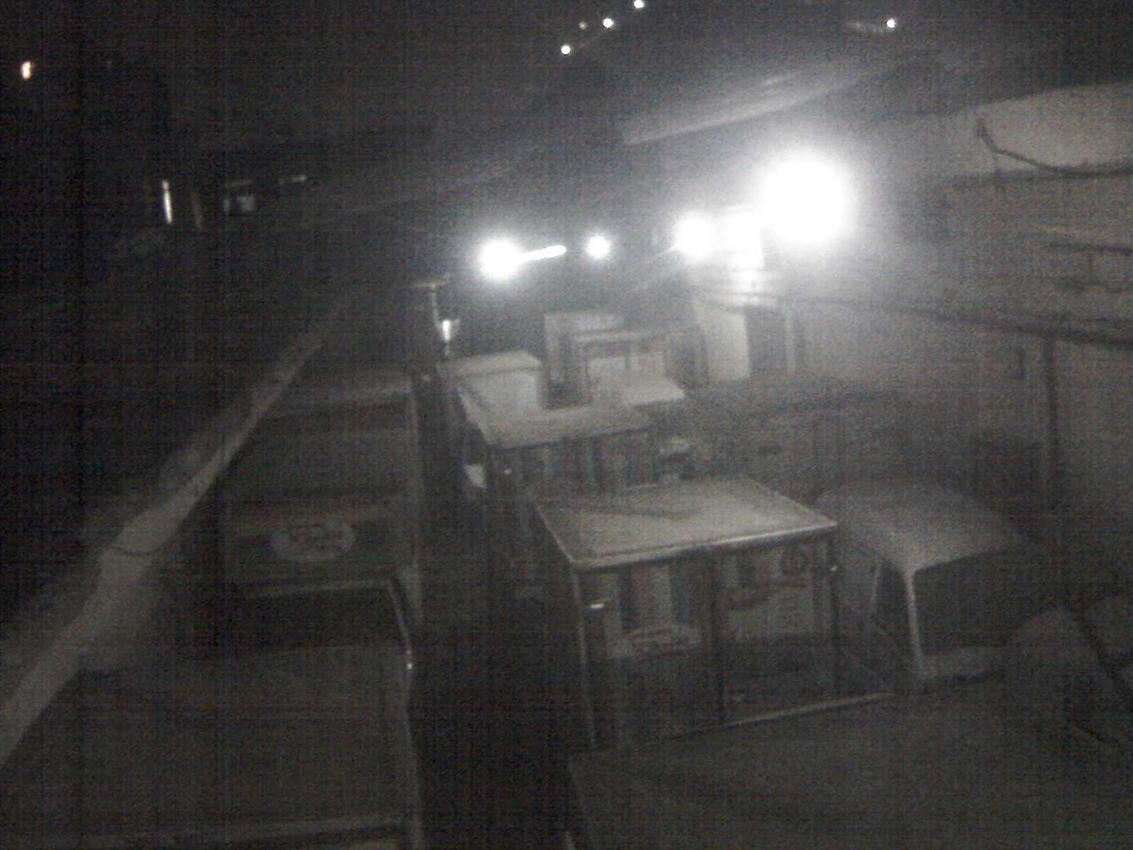
Is There a Poet in the House?
January 14, 2015
There is a spacious lobby in the Beirut airport that is entirely white—the floor, the walls, the ceiling, and the few scattered benches.
I am waiting for someone to pick me up and take me to a conference. There are carpenters here, making things out of wood, and painters painting them white. I begin to notice cockroaches scuttling beneath us, tiny but starkly visible against the white surroundings.
A group of people in formal attire walk in. They appear to be in a hurry. “Is there a poet in the house?” a man in a tuxedo asks. He seems quite nervous.
I glance at the workers in the hall and they glance back at me. No one answers. A woman in pearls repeats the question. “Is there a poet here, please? We are in urgent need of a poet.”
Again, nobody answers, and the workers go back to their business. I continue to observe the scene, silently, watching the cockroaches as they dance through the feet of the elegant group in their formal clothes.
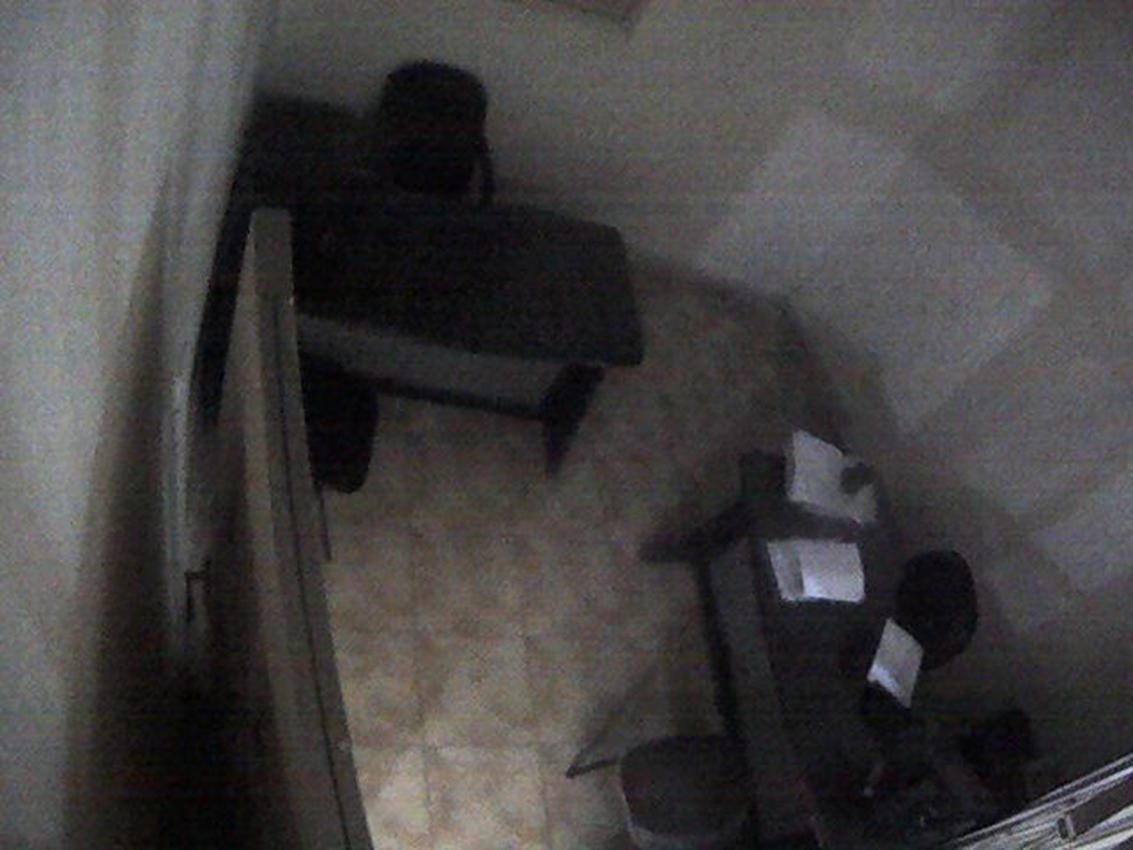
January 28th
January 28, 2016
Cairo is under heavy, constant shelling. Fighter jets are buzzing low, the streets are growing dark, and I am downtown, running aimlessly with the crowd.
The shelling stops for a few minutes, and everyone starts to slow down. We stop and look up at the sky in terror and disbelief.
Explanations are exchanged: Israel, the US, Ethiopia, Iran. No—it is Qatar and Turkey, avenging the Brotherhood. No—it is the Army, teaching the people a lesson.
The bombing resumes, even more violently this time. Downtown is a warzone. There are piles of burning rubble everywhere.
I find myself by Cairo Station, unscathed so far. It occurs to me that leaving Cairo might be a good idea.
Inside, a crowd has gathered around a train and is attempting to convince the drivers to go for it. One of them finally agrees, so I jump on with everyone else.
Communications are down. There are no phone signals, no Internet. The people jammed in the train car exchange the same explanations I’d heard on the street. The usual bickering starts up between Sisi fans and Brotherhood supporters, as well as the Revolution enthusiasts who hate both.
We arrive at Mansoura. There is no shelling here, but people have abandoned their homes in panic and are now flooding the streets, trying to find shelter before the next attack. The biggest crowds surround the mosques and the churches. Smaller groups huddle around restaurants and cafés, in parks and on the sidewalks.
People start to engage in arguments and conversations, but the talk soon shifts to devising ways out of the situation. Radio and TV broadcasts come to a halt, and people start to circulate the news themselves.
A story begins to make its way through the crowds. US president Donald Trump has called Sisi to complain that government media outlets are still alleging an American conspiracy against Egypt. If America wanted to attack Egypt, Trump was said to have said, it wouldn’t bother with a conspiracy. We’d just do it. That’s when Sisi really let him have it. Trump hung up angrily. Within thirty minutes, US bombers were in the air.
Now, speculation is rife about whether Sisi has been killed or has fled the country after the presidential palace was shelled. The Ministries of Interior, Foreign Affairs, and Defense have all been destroyed, as well as the Security Headquarters in Cairo and Giza. And a great number of army camps, and the Mugamma’ in Tahrir Square, and all the buildings in central Cairo. The Citystars Mall in Heliopolis has been destroyed, too—special attention is given to that fact—along with the Al-Azhar and Al-Hussein mosques. Many note that not a single church has been hit.
I go for a stroll and find myself near a small circle of men in suits. One of them is doing most of the speaking; everyone calls him Doctor.
“There are no indicators of a foreign occupation,” the doctor says, quietly. “But what is surely to happen after the destruction of Cairo and the collapse of the centralized state is that society will disintegrate. We are going to have to rebuild society ourselves,” he says. “And this is why we are going to start a series of seminars in sociology.”
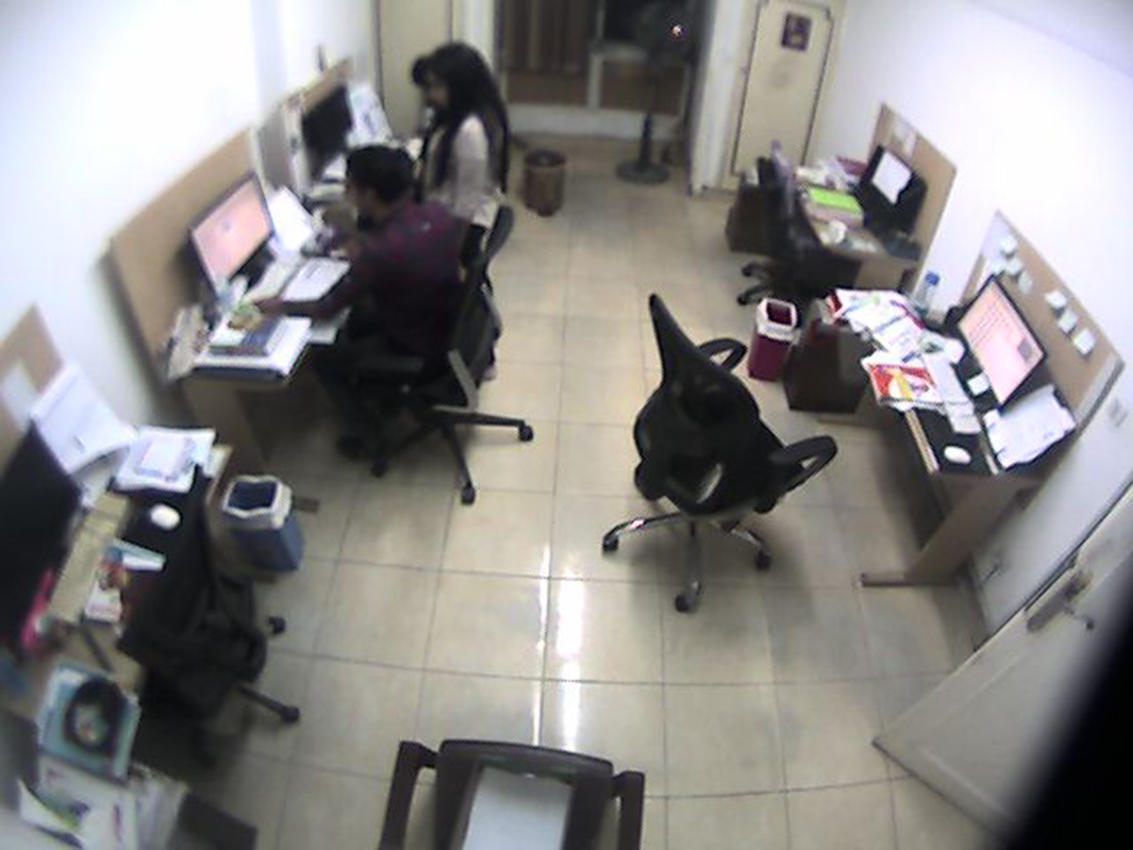
The Party
July 16th, 2016
We are celebrating Ahmed Naji’s release from prison. The court has suspended his jail sentence for violating public decency, pending the next stage of his appeal. We’re in a villa. It is white and empty—no furniture of any kind. There’s no food or drink, not even water.
We’re in the swimming pool, Naji and I. It’s empty. No water there, either. We walk along the bottom while everyone else roams the villa and its grounds.
Naji and I recall that once upon a time this villa was the Ethiopian Embassy. Suddenly it all makes sense. Egypt has been fighting with Ethiopia over access to Nile water for years now, ever since they announced the Grand Ethiopian Renaissance Dam project. The government must have cut off the water supply.
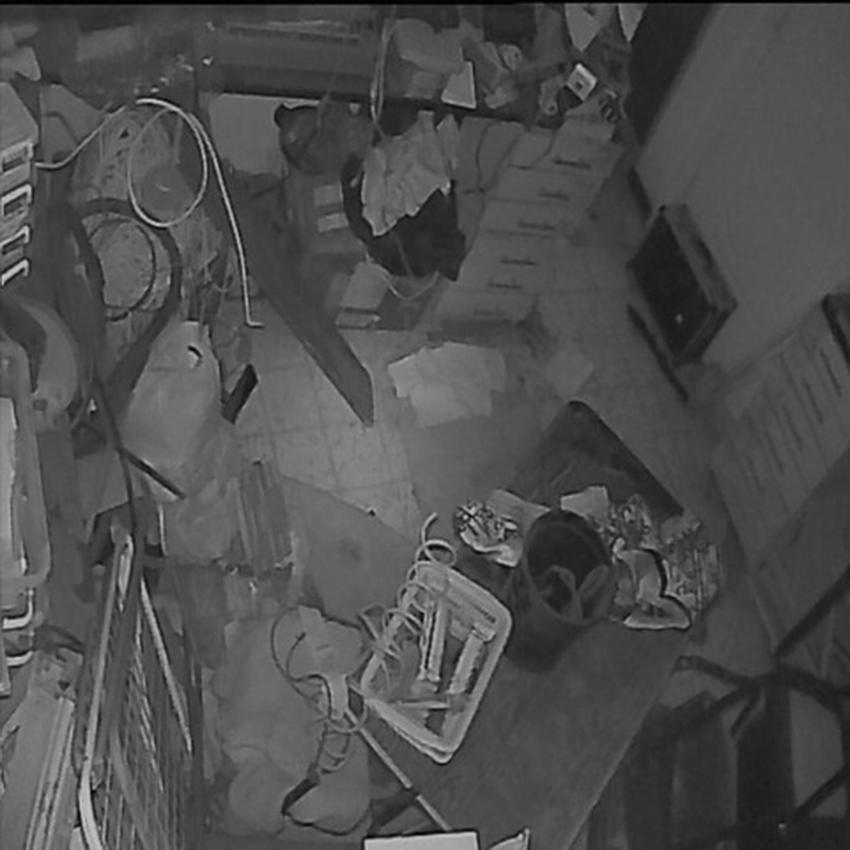
Nasser’s Desk
September 2, 2016
We’re at a noisy party in someone’s house, and Naeem and I move into an empty room to continue our conversation. We find an old desk. Naeem places his drink on it and starts to search the drawers. It appears he has found something—he slides open the rest of the drawers and rummages through them, flipping through papers. Then he looks at me, laughing hysterically. “This is Gamal Abdel Nasser’s desk.”
I begin devising a plan to remove the contents of the desk, but Naeem says we must take the desk itself out to the street immediately.
We pick up the desk and descend the stairs, placing it on the sidewalk of the loud, bustling street in Imbaba.
Naeem pulls out a bottle of wine and two glasses from a drawer. He begins pouring and asks me to join him for a drink. I remind him that we’re in public, on the street in Imbaba, but he is already half-drunk and ignores me.
He leaps onto the desk, glass in hand, and shouts, “I swear to God — I swear to God — I’m gonna turn this desk into a sandwich cart.”